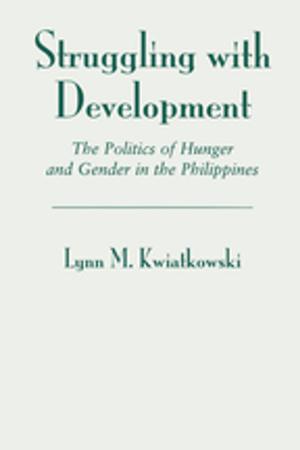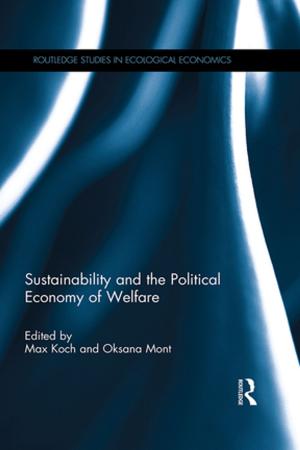Sacred Surrealism, Dissidence and International Avant-Garde Prose
Fiction & Literature, Literary Theory & Criticism, Gothic & Romantic| Author: | Vivienne Brough-Evans | ISBN: | 9781317060154 |
| Publisher: | Taylor and Francis | Publication: | May 5, 2016 |
| Imprint: | Routledge | Language: | English |
| Author: | Vivienne Brough-Evans |
| ISBN: | 9781317060154 |
| Publisher: | Taylor and Francis |
| Publication: | May 5, 2016 |
| Imprint: | Routledge |
| Language: | English |
Vivienne Brough-Evans proposes a compelling new way of reevaluating aspects of international surrealism by means of the category of divin fou, and consequently deploys theories of sacred ecstasy as developed by the Collège de Sociologie (1937–39) as a critical tool in shedding new light on the literary oeuvre of non-French writers who worked both within and against a surrealist framework.
The minor surrealist genre of prose literature is considered herein, rather than surrealism's mainstay, poetry, with the intention of fracturing preconceptions regarding the medium of surrealist expression. The aim is to explore whether International surrealism can begin to be more fully explained by an occluded strain of 'dissident' surrealist thought that searches outside the self through the affects of ekstasis.
Bretonian surrealism is widely discussed in the field of surrealist studies, and there is a need to consider what is left out of surrealist practice when analysed through this Bretonian lens. The Collège de Sociologie and Georges Bataille's theories provide a model of such elements of 'dissident' surrealism, which is used to analyse surrealist or surrealist influenced prose by Alejo Carpentier, Leonora Carrington and Gellu Naum respectively representing postcolonial, feminist and Balkan locutions. The Collège and Bataille's 'dissident' surrealism diverges significantly from the concerns and approach towards the subject explored by surrealism. Using the concept of ekstasis to organise Bataille's theoretical ideas of excess and 'inner experience' and the Collège's thoughts on the sacred it is possible to propose a new way of reading types of International surrealist literature, many of which do not come to the forefront of the surrealist literary oeuvre.
Vivienne Brough-Evans proposes a compelling new way of reevaluating aspects of international surrealism by means of the category of divin fou, and consequently deploys theories of sacred ecstasy as developed by the Collège de Sociologie (1937–39) as a critical tool in shedding new light on the literary oeuvre of non-French writers who worked both within and against a surrealist framework.
The minor surrealist genre of prose literature is considered herein, rather than surrealism's mainstay, poetry, with the intention of fracturing preconceptions regarding the medium of surrealist expression. The aim is to explore whether International surrealism can begin to be more fully explained by an occluded strain of 'dissident' surrealist thought that searches outside the self through the affects of ekstasis.
Bretonian surrealism is widely discussed in the field of surrealist studies, and there is a need to consider what is left out of surrealist practice when analysed through this Bretonian lens. The Collège de Sociologie and Georges Bataille's theories provide a model of such elements of 'dissident' surrealism, which is used to analyse surrealist or surrealist influenced prose by Alejo Carpentier, Leonora Carrington and Gellu Naum respectively representing postcolonial, feminist and Balkan locutions. The Collège and Bataille's 'dissident' surrealism diverges significantly from the concerns and approach towards the subject explored by surrealism. Using the concept of ekstasis to organise Bataille's theoretical ideas of excess and 'inner experience' and the Collège's thoughts on the sacred it is possible to propose a new way of reading types of International surrealist literature, many of which do not come to the forefront of the surrealist literary oeuvre.















